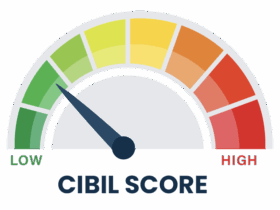Most business owners think their accountant’s job is to file tax returns – until they discover what strategic accounting support can actually do for their growth.
Modern accounting has evolved far beyond basic tax compliance. The businesses that are excelling right now don’t see their accountant as a necessary evil or a compliance checkbox. They see them as growth partners who translate financial data into actual strategies that make money.
Firms like Keypoint Accountants, a leading Gold Coast accounting firm, demonstrate this evolution perfectly – they focus on strategic business advisory alongside traditional services.
With everything changing in the Australian business landscape this year—from new tax rules to rapidly evolving technology—having the right financial minds in your corner has become increasingly important.
This guide shows you why the old “my accountant does my tax” mindset is limiting your business potential. You’ll discover what modern accounting support actually looks like and how to find professionals who can help you grow, not just stay compliant.
Keep reading to learn how the right accounting partnership could unlock opportunities you’re currently missing.
The Bottom Line Up Front
- The instant asset write-off threshold drops back to $1,000 after June 2025 (from $20,000), so you need a plan now if you want to make big purchases.
- Smart businesses are using cloud accounting to make decisions in real-time instead of looking at six-month-old data.
- If your business has hit a growth ceiling, chances are you’re not using your financial data to spot new opportunities.
- A decent accounting firm should be helping you grow, not just keeping you compliant with the ATO.
- Your accountant should be building cash flow models that help you see problems before they happen, not after.
- Businesses ignoring sustainability reporting and AI-driven insights are going to fall behind competitors in 2025.
The Tax Stuff You Need to Know Right Now
The tax landscape in Australia is complex this year. If you’re not paying attention, you could be leaving serious money on the table.
First up, that instant asset write-off that’s been fantastic for businesses? It’s dropping from $20,000 back to $1,000 after June 30, 2025.
If you’ve been thinking about investing in new equipment, vehicles, or tech for your business, the clock is ticking. After that date, you’ll be back to depreciating most assets over years instead of claiming them immediately.
Then there’s the super changes. Super guarantee has ticked up to 11.5% this year, and it’ll hit 12% in July 2025. Have you updated your payroll system yet?
The ATO isn’t feeling particularly forgiving about super compliance these days. From July 1, you’ll need to pay super on parental leave payments too—another admin headache if you’re not prepared.
A construction client recently brought forward $85,000 in equipment purchases to beat the deadline.
Smart move.
Meanwhile, his competitor down the road is still unaware, probably about to miss out on thousands in tax savings.
The businesses that are winning aren’t just ticking compliance boxes—they’re turning these tax changes into strategic advantages.
It really comes down to whether your accountant is just telling you what happened last year or helping you plan for what’s coming.
What Modern Accounting Actually Looks Like
If your accountant is just doing your tax return and sending you last year’s profit and loss statement, you’re getting the bare minimum.
It’s like hiring a personal trainer who just counts your reps but never actually helps you improve your technique or nutrition.
The real value in accounting these days isn’t in telling you what happened six months ago—it’s in helping you figure out what to do next.
Modern accounting should give you insights like:
- “Your materials costs increased 14% last quarter while your prices only went up 5%—here’s how that’s crushing your margins.”
- “Your fastest-growing service line is actually your least profitable—let’s talk about whether you should restructure pricing or refocus resources.”
- “Based on your current growth rate, you’ll hit a cash flow wall in about four months—let’s put a funding strategy in place now.”
A client in the healthcare sector was working 70-hour weeks but seeing minimal profit improvement.
When we implemented proper financial dashboards and regular strategy sessions, we discovered two of her six service lines were actually losing money.
By refocusing on the four profitable services, her net profit jumped 34% within a quarter, and she cut her hours back to a reasonable level.
This shift from compliance to strategy isn’t just nice to have—it’s essential.
On the Gold Coast, where competition is fierce and the business landscape moves quickly, having real-time financial insights can be the difference between spotting a market opportunity first and watching your competitor get there before you.
The Financial Headaches That Keep Business Owners Up at Night
Some common financial pain points tend to hold growing companies back.
Cash Flow
The big one is cash flow, and it doesn’t matter whether you’re turning over $1M or $50M—cash flow problems can bite you just the same.
Profitable businesses can struggle simply because they couldn’t bridge the gap between paying suppliers and getting paid themselves.
One manufacturing client was growing so fast that they nearly collapsed because they couldn’t fund the inventory needed to fulfill new orders.
Ironic, right? Success nearly killed them.
Flying Blind
Then there’s the “flying blind” problem. So many business owners are making crucial decisions based on gut feel rather than solid data.
They might have financial reports, but they either don’t understand them properly or the reports aren’t giving them the specific insights they need.
A retail client was convinced his Gold Coast location was underperforming based on “foot traffic,” but when we looked at the numbers, it was actually his most profitable store on a square-meter basis. He nearly closed a goldmine!
Taxes
Tax complexity is another killer. As your business grows, the tax implications get exponentially more complicated.
Should you be operating through a company, trust, or partnership? Are you structured correctly for asset protection? Are you claiming every legitimate deduction?
Most business owners miss opportunities here without proper advice.
Growth Funding
Growth funding creates challenges too. Many businesses try to fund expansion entirely from cash flow, putting unbearable strain on operations.
Others jump straight to bank loans when alternative funding might have been cheaper or more flexible.
Without proper financial modelling, these decisions are basically educated guesses.
What Good Accounting Actually Does for Your Business
What’s the real difference when you work with a quality accounting firm?
First, you’d have crystal clear visibility into what’s actually driving your profits.
Not just overall numbers, but granular insights into which products, services, customers, or locations are your real winners and which ones are secretly draining resources.
A local Gold Coast trades business was taking on every job that came their way. When we analysed their data properly, we discovered jobs under $5,000 were consistently unprofitable once you factored in travel time and admin overhead.
By raising their minimum job size and referring smaller work to other businesses, their profit margin doubled within months despite doing fewer jobs.
Second, you’d have forecasting that actually helps you sleep at night.
Proper cash flow modelling means you can see potential crunch points months in advance, giving you time to line up inventory financing, negotiate better terms with suppliers, or time your growth initiatives more strategically.
One retail client uses detailed forecasts to perfectly time their seasonal stock purchases, minimising both storage costs and the chance of stockouts during peak periods.
Third, you’d have a business structure that works for you, not against you.
Many businesses operate through structures that are costing them thousands in unnecessary tax or leaving their personal assets exposed to business risks.
A cafe owner saved over $25,000 in tax in a single year after we restructured his operations, creating a much clearer separation between his business assets, property holdings, and personal finances.
Finally, you’d have a partner who connects your financial decisions to your actual life goals.
What’s the point of building a successful business if it doesn’t serve your broader objectives?
Whether that’s early retirement, funding your kids’ education, or just having more time to enjoy life, your finances should be working toward those goals.
One client was working himself to the bone growing his business, and it wasn’t until we sat down and mapped out exactly how much he actually needed to fund his desired lifestyle that he realised he was already there.
He’s now cut back to three days a week and spends more time with his family.
The Tech That’s Changing the Accounting Game in 2025
The tech innovations happening right now are completely changing what’s possible for businesses of all sizes.
Cloud accounting systems have revolutionised how businesses handle their finances.
If you’re still using desktop accounting software (or worse, spreadsheets), you’re genuinely putting yourself at a competitive disadvantage.
Modern cloud platforms connect directly to your bank feeds, payment processors, inventory systems, and CRM tools to give you a real-time view of your business performance.
One retail client can now see their daily sales, margin, and inventory position from their phone while at trade shows, making purchasing decisions with confidence.
Data visualisation has made financial information massively more accessible.
We’ve moved away from boring spreadsheets to interactive dashboards that show clear trends and patterns.
Clients who used to dread financial reviews now actively engage with their data because they can finally “see” what’s happening in their business through intuitive charts and graphs.
Process automation is freeing up incredible amounts of time for both businesses and their accountants.
Tasks that used to take days—like processing supplier invoices, reconciling accounts, or preparing BAS statements—can now happen largely automatically.
This means your accountant can spend less time on data entry and more time actually advising you on strategy.
One construction client automated their subcontractor payment processes and saved 15 hours of admin work every single week.
Sustainable Finance: Why It Actually Matters to Your Bottom Line
Sustainable finance has become a serious business consideration with real financial implications.
Banks and lenders are now offering better rates to businesses with strong environmental, social, and governance (ESG) practices.
A manufacturing client received a 0.4% discount on their equipment financing simply because they could demonstrate energy efficiency improvements in their operations.
The tax incentives are getting pretty substantial, too.
The federal and state governments are using tax breaks to encourage businesses to adopt renewable energy, reduce carbon footprints, and implement circular economy initiatives.
A Gold Coast hospitality client installed solar panels and energy-efficient kitchen equipment last year, and between the immediate tax deductions, ongoing energy savings, and government rebates, they’ll see a complete return on investment in under three years.
Supply chain dynamics are shifting as well. Major companies are starting to give preferential treatment to suppliers with strong sustainability credentials.
Even the accounting standards themselves are changing. While detailed sustainability reporting is still voluntary for most small and medium businesses, the direction is clear—it’s becoming part of standard financial disclosure.
Getting ahead of this curve means you won’t be scrambling when these standards eventually become mandatory.
The bottom line? Sustainability isn’t just about saving the planet—it’s increasingly about saving and making money, too. The businesses that adapt fastest stand to gain significant financial advantages.
How to Actually Choose an Accounting Firm That Adds Value
Let me give you the inside track on finding a firm that will genuinely help your business grow, not just tick compliance boxes.
Industry Experience Is Non-Negotiable
An accountant who understands the specific challenges and opportunities in your sector will deliver exponentially more value than a generalist.
A childcare centre had been using a general accounting firm for years. Within the first strategy session with a specialist, we identified industry-specific tax concessions they’d been completely missing out on, worth over $30,000 annually.
Their previous accountant simply didn’t know what questions to ask because they weren’t immersed in that industry.
Tech Capabilities Matter Hugely Now
If an accounting firm is still emailing Excel spreadsheets back and forth and doesn’t have a solid cloud accounting strategy, run for the hills. They’re operating in the past, and they’ll keep your business there, too.
One question to always ask:
“What dashboarding and reporting tools do you use to help clients monitor their key metrics?”
If they look confused or start talking about quarterly PDF reports, that tells you everything you need to know.
Look for a Full-Service Offering
Your needs will change as your business does, and having to find new advisors for each financial aspect is inefficient and risky.
A firm that can handle everything from day-to-day bookkeeping to complex tax planning to succession strategy gives you continuity as you grow. Think of it as future-proofing your financial support system.
Cultural Fit Is Crucial
You need to actually like and trust the people handling your finances.
If your accountant speaks in jargon you don’t understand or seems disinterested in your specific challenges, the relationship will never deliver what you need.
Personality mismatches cause more accounting relationship failures than technical issues.
Ask for Specific Examples of Results
Any accounting firm worth its salt should be able to share case studies (anonymised, of course) showing how they’ve helped similar businesses improve their financial position.
Vague promises about “adding value” aren’t enough—look for concrete examples with measurable outcomes.
Financial Strategies That Actually Work for Long-Term Success
Here are some financial strategies that work consistently for businesses that maintain success over the long haul.
Diversifying Your Revenue Streams
Diversifying your revenue streams is absolutely critical in today’s volatile market. Too many businesses collapse because they were overly dependent on a single customer, product, or service line.
A wholesale client built three distinct customer segments over two years, which saved them when their largest customer unexpectedly went into administration. Without that diversity, they would have gone under, too.
Building a Proper Cash Reserve
Building a proper cash reserve isn’t sexy, but it’s essential.
The businesses that weathered COVID best weren’t the ones with the cleverest products—they were the ones with enough cash to survive six months of disruption.
Three to six months of operating expenses is generally recommended as a minimum safety net, but the exact figure depends on your industry volatility and growth plans.
Scenario Planning
Scenario planning has become non-negotiable. The days of a single business plan and budget are long gone.
Smart businesses now model best-case, expected-case, and worst-case scenarios, with clear triggers for when to shift strategies.
A retail client has specific inventory and staffing plans tied to different performance scenarios, allowing them to adapt quickly to changing consumer behaviour without panicking.
Financial Literacy Throughout Your Organisation
When your team understands how their decisions impact the company’s financial performance, they make better choices.
A trades business shares relevant financial metrics with their project managers, who now make better decisions about resource allocation and timing because they understand the financial implications.
Data-Driven Decision-Making
Moving from “I think” to “I know” when making key business choices separates thriving businesses from struggling ones.
A distribution client religiously tracks their fulfilment metrics, staff productivity, and customer acquisition costs, using these data points to refine their operations continuously. Their competitors rely on gut feel and are consistently a step behind.
These strategies aren’t revolutionary, but they work.
The businesses that implement them consistently outperform those that don’t, especially during challenging economic periods.
Transform Financial Data into Business Growth
In today’s complex business environment, the difference between struggling and thriving often comes down to how effectively a company translates financial data into strategic action.
The right accounting firm serves as more than a service provider—they become a vital partner in your business journey, helping you navigate challenges, seize opportunities, and build lasting value.
Modern accounting relationships go far beyond compliance and record-keeping.
They include strategic planning, technology integration, industry-specific expertise, and proactive problem-solving to transform financial management from a necessary function into a competitive advantage.
The 2025 tax landscape presents both challenges and opportunities for Australian businesses.
Those who view their accounting relationship as a strategic asset rather than a necessary expense will be best positioned to thrive in this environment, turning regulatory changes into growth catalysts rather than operational hurdles.
Ready to move beyond traditional accounting? Contact Keypoint Accountants today to discover how strategic financial partnership can unlock your business potential in 2025.









Leave a Reply